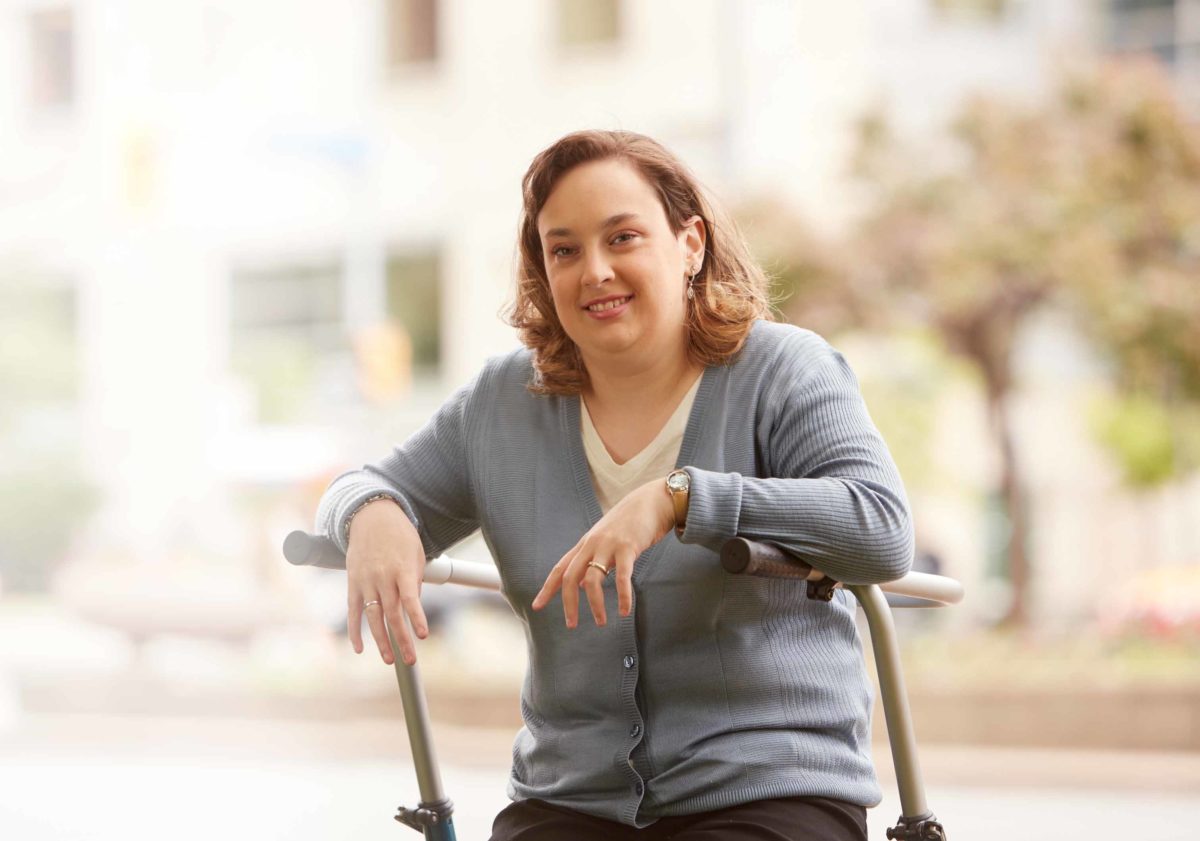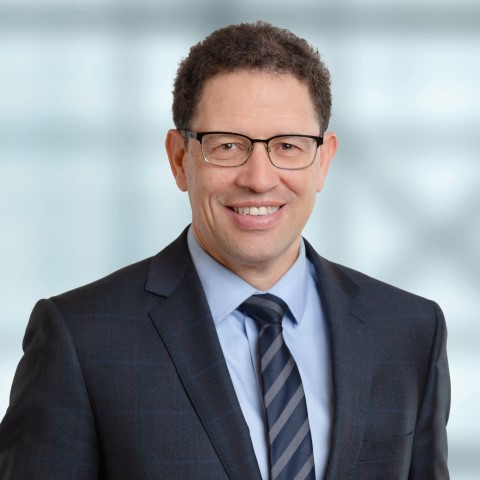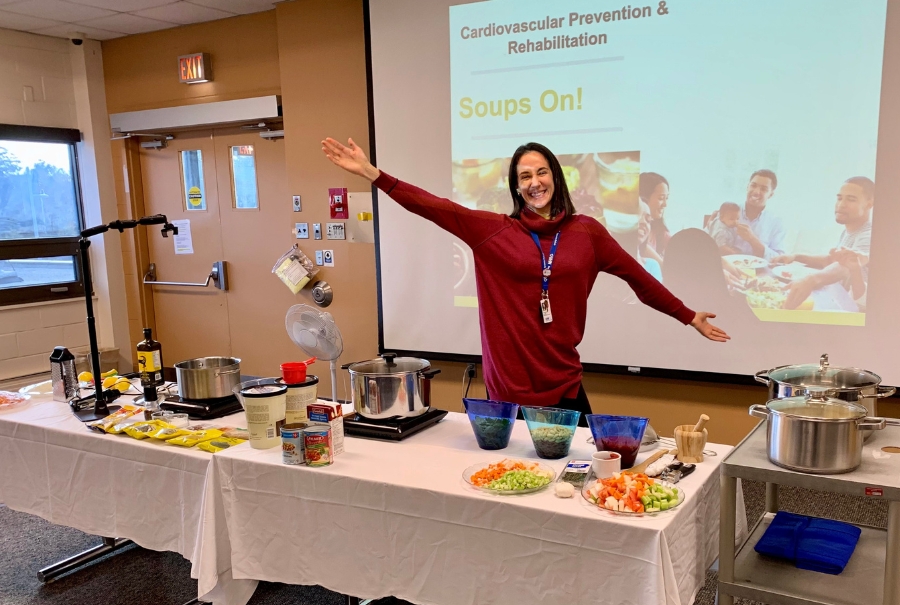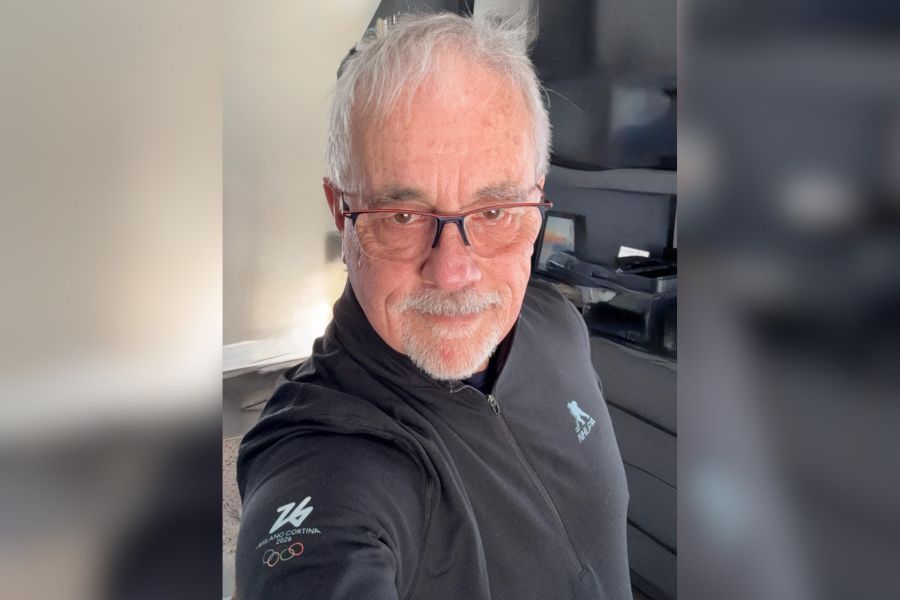
For over a decade, David and Lynn Coriat have been breaking down systemic barriers and increasing opportunities for youth with childhood-onset disabilities. Their transformational philanthropy established the Coriat Youth Transitions and Development Centre at University Health Network (UHN), a driving force for youth transitions care and research in Canada. The Coriat Family’s new, visionary $5-million gift to UHN is building on the success of the Centre and filling a critical gap in services by offering future care planning support for those with childhood-onset disabilities and their families.
Giving youth with childhood-onset disabilities the opportunity to thrive
The Coriat Youth Transitions and Development Centre at Toronto Rehab brings together medical management, personal development opportunities, vocational training and groundbreaking research to help youth with childhood-onset disabilities lead independent and fulfilled lives. Through its wraparound supports, the Centre helps patients address their physical and mental health needs, find employment and housing, socialize and learn other important life skills in one place.
At the heart of the Coriat Youth Transitions and Development Centre is LIFEspan, a program that supports youth with childhood-onset disabilities as they transition from pediatric rehabilitation at Holland Bloorview to adult rehabilitation at Toronto Rehab. LIFEspan currently serves over 600 youth as they develop the life skills needed to advocate for themselves, live independently, secure employment and engage in their communities.
“I think it’s crucial that they’re attempting to do something about adult services because our disabilities don’t stop at 18.” LIFEspan Youth Participant
Building awareness to break the stigma

David and Lynn Coriat’s philanthropy has been inspired by the experiences of their daughter, Jessica, who was born with cerebral palsy. Jessica participated in the LIFEspan program and volunteered at Toronto Rehab for several years. As an advocate and champion of accessibility, Jessica received Canada’s Volunteer Award in 2016 for making exceptional contributions to improving the well-being of individuals and families.
The Coriat Family has experienced firsthand the gaps in the health care system that exist for youth with childhood-onset disabilities. Disability can also come with stigma, bullying and social isolation. The Coriats hope that increasing opportunities, support and awareness will change the way people perceive children and youth with childhood-onset disabilities and demonstrate their full potential.
“Awareness is essential to helping youth with disabilities help themselves,” says David Coriat. “The more people that join the conversation, the wider impact we can have on helping patients and their families overcome challenges in navigating the care system and create a seamless care journey at all stages of life.”
Expanding support for future care planning
As parents of a young adult with a childhood-onset disability, David and Lynn Coriat saw the barriers that exist for caregivers trying to plan for the future of their loved ones with childhood-onset disabilities. To fill this critical gap in support, they generously donated $5-million donation to create the LIFEspan Future Care Program within the Coriat Youth Transitions and Development Centre. The LIFEspan Future Care Program will provide families with guidance to consider all aspects of future care planning, including housing, finances and future caregiving arrangements.

For many families, future care planning is a major concern to ensure that those with childhood-onset disabilities have a long-lasting quality of life. Unfortunately, the anticipated difficulty of making plans can lead to inaction and a feeling of paralysis. The LIFEspan Future Care Program will initiate conversations about this important process and support families in navigating future care planning in a space they know and trust, providing peace of mind.
Creating new peer navigation tools
Thanks to the generosity of the Coriat Family, Toronto Rehab has built a leading youth transitions research program that is evaluating the needs of youth with childhood-onset disabilities and creating tools to address these needs. The latest gift from the Coriat Family will allow Dr. Sarah Munce, Coriat Youth Transitions Researcher, to create an evidence-based, user-informed virtual peer navigation app to help youth with childhood-onset disabilities lead their healthiest lives. The app’s features will include a health library, goal-setting tool, video chat with peer navigators and other components as requested.

“With the generosity of the Coriat Family, we are creating a tool that will improve knowledge, readiness for and confidence in accessing and using appropriate health services in the community among youth with childhood-onset disabilities,” says Dr. Sarah Munce. “Their philanthropy has fueled youth transitions research at UHN, establishing Toronto Rehab as an international leader in this field.”
The gift will also establish the Coriat Family Chair in Rehabilitation Service Innovation, an esteemed clinical and academic position that will provide the leadership needed for Toronto Rehab to continue excelling in transitional care and redefining rehabilitation.
Changing the lives of youth with childhood-onset disabilities
The Coriat Family’s visionary philanthropy has built a hub for youth with childhood-onset disabilities and their families where they can access all the support they need in one place, now including future care planning. The Coriat Youth Transitions and Development Centre helps these individuals navigate the complexities of the health care system and social services, preventing anyone from slipping through the gaps and providing them with the tools needed to lead fulfilled and independent lives. For many, this support is life-changing.
“We are incredibly grateful to the Coriat Family for their generosity in providing Toronto Rehab with the resources and expertise to lead youth transitional care and research in Canada,” says Dr. Mark Bayley, Physiatrist-in-Chief and Medical Director at Toronto Rehab. “With their support, we have created a world-class centre serving the specialized clinical, social and employment needs of youth with disabilities.”


